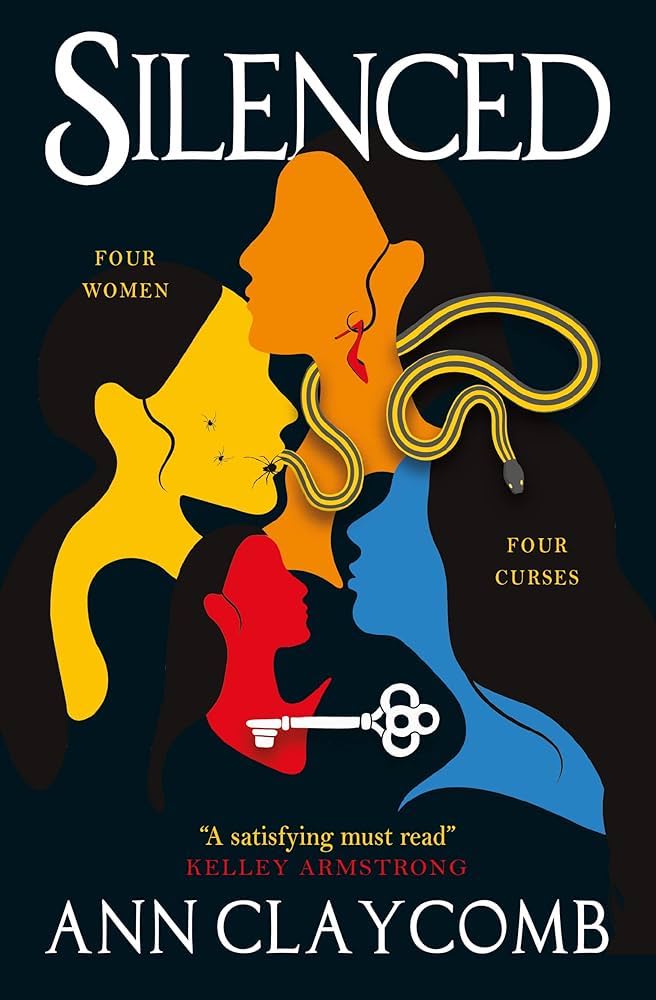Fairy tales’ dark sides brought to a modern reckoning
New novel features four women seeking revenge on an accursed boss
New novel features four women seeking revenge on an accursed boss
Fairy tales roll around in our collective consciousness like a distant school bell, faint but instantly recognizable. Familiar characters and tropes abound in everything from popular music to advertising campaigns. Little Red Riding Hood was once used to sell sugar-free Dr. Pepper. Once Upon a Time and Grimm were television series. Films have included the rollicking mash-up tale Shrek and any and all of those Disney princess movies.
In Silenced, the latest novel by Colorado author Ann Claycomb, fairy tales take on a new life, adhering more closely to the older, bloodier versions recorded by the Brothers Grimm than the sanitized, G-rated versions replete with flowers, sunshine, helpful forest creatures and happy endings. Claycomb has written in this subgenre of modern fairy tale fantasy already—her previous novel, The Mermaid’s Daughter was a modern reimagining of Hans Christian Anderson’s The Little Mermaid.

Ann Claycomb
Silenced opens with a trigger warning: the story details the fallout from sexual assaults on four women—Abony, Ranjani, Jo and Maia—perpetrated by the CEO of the company where they all work.
In the book’s opening scene, we meet Abony and Ranjani, who are entering the local police station together to report their separate assaults. They support each other through a horrific moment, though they rightfully suspect they are doomed to failure. Claycomb manages to make the brief descriptions of the assaults realistic and appropriately horrific without using graphic detail.
The damage inflicted by their CEO extends well beyond the physical violation of their bodies. He curses each woman before they leave his office after being assaulted, ultimately ensuring their silence. As the story unfolds, we see how each woman learns the parameters of her curse, and the sad or terrifying consequence of trying to defy it. As hard as the newly allied women work to understand what has happened to them, they also work to uncover any discernible pattern in the CEO’s attacks, hoping to assist other victims and prevent more attacks.
Soon, Abony and Ranjani discover fellow victims Jo and Maia. The four women, barely acquaintances, find friendship and strength through combining their various talents to attempt to save themselves. But as the women search for other survivors, they learn that not every victim has the fortitude or the desire to fight the curse. As with real life, some women deem the price of action too high—threats against themselves or their loved ones are more than they are willing to pay.
Readers unfamiliar with modern fantasy or fairy tale literature might suspect this premise will be too unrealistic, but Claycomb has a masterful way of convincing readers even as the characters are convincing themselves what has befallen them. None of the four ensemble characters immediately jump to the right conclusion, nor are they intimately familiar with the details of fairy tales in general.
Inserted between chapters of the book are excerpts from “Fairy Tales Forever Discord Channel,” a fictional online channel for  discussing fairy tales and comparing their underlying themes to what people are experiencing in their real lives (note: Discord.com, a web-based group chat site, does have several landing zones for fairy tales, but none with this name). It will be eye-opening for readers unfamiliar with the origins of fairy tales to learn some of the original stories, replete with the gruesome details that Disney edits out. Some modern examples, like the story of Britney Spears, shine a light on how very much the silence and subjugation of women still is viewed as acceptable currency in our modern world.
discussing fairy tales and comparing their underlying themes to what people are experiencing in their real lives (note: Discord.com, a web-based group chat site, does have several landing zones for fairy tales, but none with this name). It will be eye-opening for readers unfamiliar with the origins of fairy tales to learn some of the original stories, replete with the gruesome details that Disney edits out. Some modern examples, like the story of Britney Spears, shine a light on how very much the silence and subjugation of women still is viewed as acceptable currency in our modern world.
Fairy tale imagery bursts from every corner of this book. Evil stepmother? Check. Witch? Check. References to Rapunzel and Hansel and Gretel and Sleeping Beauty? Check, check and check. The beauty of Claycomb’s accomplishment is that all the pieces and all the imagery meld together to form a realistic modern tale of women refusing to accept what the villain has dished out. They don’t have supernatural powers or wizened grandmothers whispering ancient wisdoms to them. There’s no legion of handsome princes on noble steeds waiting to rush to the rescue. In fact, the story contains a welcome balance of relationships that work out in a variety of ways, always satisfying even if not every reader will deem them fairy tale happy endings. One can only hope that Claycomb will produce more of these thoughtful and conversation-provoking stories.
MB Partlow (she/her) is a Colorado transplant who has written for the CS Indy, the Gazette, and Pikes Peak Parent, most prolifically in the area of food reviews. She is co-host of the Mysteries, Monsters, & Mayhem podcast, which allows her to indulge her curiosity and her sense of humor, while sharing both with the world. She reads across genres, and generally needs another cup of tea.
Click here for more from MB Partlow.

